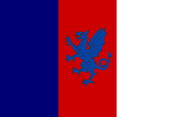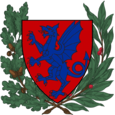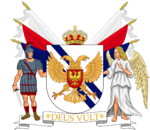Republic of Somster
This article refers to a micronation or element of micronationalism which is defunct and no longer exists. You can help make the article reflect that or ask on the talk page for further information. |
| |
|---|---|
| Motto: Мы либо найдём выход, либо сами его создадим. (Eng: We will either find a way or make one.) | |
| Anthem: "I Vow To Thee, My Country" | |
| File:Somerset, South-West England | |
| Capital | |
| Largest city | |
| Official languages | English, Ashukov, Russian |
| Demonym(s) | Somsterik |
| Government | Unitary Parliamentary Constitutional Republic |
• Prime Minister | |
• Deputy-Prime Minister | William Chant |
| Legislature | State Duma of Somster |
| Establishment | 25 March 2011
March 24, 2012 (As an independent State) May 25, 2013 (As a state of Ashukovo) |
| Population | |
• Census | 17 |
| Currency | Ashukov denar (Ѥ) |
| Time zone | GMT |
Somster is a state of Ashukovo | |
Somster, officially the Republic of Somster, is a landlocked state of the Ashukov Federation. It claims land in Somerset, a county of the United Kingdom and considers itself an 'alternative government' to that of Britain. It comprises of four Oblasts and two Kraj's and borders Wyvern, the United Kingdom and Norway. A former nation of the Confederation of St Luke and Amager, the nation soon joined Ashukovo after Amager's collapse in 2013, specifically the 25th of May. It prides itself on its liberal and progressive policies and environmentally friendly innovations.
The Republic is a parliamentary republic, most power held in the President's Office yet Administered by the Prime Minister, respectively. It is a major political player in Ashukov Politics and holds the bulk of citizens that fill the nation and is a moderately powerful nation in the British region, alongside states such as Clyro. Somster has a large welfare state and a mixed market capitalist economy, however corruption remains a problem. The national language is English, of which is shares strong cultural and historical ties, particularly with Somerset. The nation also holds a seat in the Federal Assembly of Ashukovo, being a constituent state.
Etymology
The name "Somster" derives from two words. The "Som" refers to the Summer, as it does in the name Somerset too, denoting the ways of old when Somerset was farmed during the summer yet left during the winter, when it flooded. Ster, on the other hand, means 'stronghold' in English, although it does mean a variety of other things depending on its context. It's a well used suffix in England and the location is usually coupled with what used to be or still stands as a castle or fortress. Both of these combined makes Somster, also a nod to where the state is located, however it does claim a small amount of territory across the border in Dorset.
History
Prehistory
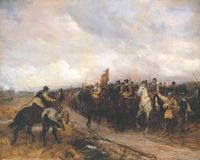
The earliest known settlers that inhabited the area in and around Somster date back to the Palaeolithic era and a vast number of historically significant sites are spread all around the land. Alot of Iron Age settlements have been found such as hill forts and temples as well as the bones of hunters and soldiers along with their weapons and other such things. The Second Legion Augusta invaded in around AD 47 and the county remained part of the expanding Roman Empire for hundreds of years, as their remnants indicate. These ruins include Maiden Castle in the very south and the ancient city of Bath, to the close north. After the Empire left Somerset the Anglo-Saxons took control of the area and once again it was under control of 'native's. Later on, after the Norman conflict of 1066 the new powers divided up Somerset, building even more castles, such as that of Dunster. Next, specifically during the English Civil War, Somerset was largely Parliamentarian. The before mentioned Dunster castle was one of the southern strongholds from Cromwell's troops as well as being the setting for numerous battles and sieges. To the south laid a large pocket of Royalists which was extinguished when General Fairfax was sent by Cromwell to control the province. A number of castles, scattered around the country and the surrounding area, are now ruins as a result of Cromwellian sieges. Later on, in 1685, the Monmouth Rebellion, commonly known as the 'West Country Rebellion' began in Somster. The rebels landed south, in Dorset, and travelled north, up into Somerset, gaining support along the way. However, they were defeated before they could leave at the Battle of Sedgemoor, of which was the last pitched battle ever to be held in England. Somerset (Somster) would become a key source of agriculture, industry and coal of the United Kingdom throughout the industrial age.
Foundation
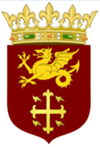
The date of when the micronation was officially founded is not recorded, nor are many of the past incarnations of Somster, especially those closer to its beginning. After discussing with Penda II, Sebastian Schriber set to work on creating the nation of Carrum, at a later date a pivotal part of the Saxon Empire. After a steady start the Kingdom began expanding its influence, taking control of both foreign, political and religious affairs of the Saxon Empire as well as conducting a number of wars to further develop the Saxon dominance over the micronational community. This was characterized when the Saxon Empire and its allies, specifically Sierra, went to war with Smallia over rights to a land claim. The war lasted a long time and many other nations joined in, including that of the Worker's Democratic Republic under Freya. Allies of Smallia dropped off under Saxon pressure however Smallia itself remained resilient against the wave of propaganda and heated arguments. The war came to a bitter stale mate that was eventually broken when the two sides reach a mutual decision to end the conflict and rebuild diplomacy. The government has since denounced the war, calling it 'foolish' and 'a pitiful effort to expand Saxon control' and has apologised to all participants, micronational wars have since been outlawed under the Neutrality Act 2013 however the Federal Government can still call Somster to arms. (Right: The Kingdom of Carrum's coat of arms under the Saxon Empire.)
Later on the Saxon Empire fell inactive, with the close state of Domanglia leaving and many other constituent states falling dormant Schriber decided to leave the Saxon Empire. After initial talks Penda released Carrum while talks with the rapidly expanding Amager, which had hit the intermicronational community like a bomb, had already begun. Rebranded 'Luciania' after the Roman godess the time in Amager exposed the nation to liberal and forward thinking politics, however, all was not well. Schriber clashed with other leaders, specifically Luke Albertschine and Leon Simpson on the matter of foreign policy and military and although many steps were taken to keep Luciania inside the Confederation by both Schriber and Albertschine inevitably, after discussion with what used to be Domanglia (then Doshevika) the Republic left the Confederation for good. Inactivity and instability hit the nation hard yet it still survived and remained remotely active in Amatine politics. Schriber was quoted to say 'our nation has never survived properly on its own, it belongs as a constituent state, it's too unstable.' This rung true as word was put out that the reformed Carrum was once again back and looking for a nation to join. However, just as Amager had rapidly risen, history always repeats, and it slowly yet surely collapsed after a number of nations followed in Luciania's footsteps. The remnants of Amager such as Akharnes and Montania decided to create the Ashukov Federation and soon discussions began to join the Federation. Although wary of Carrum's track record in other nations the leaders let the nation enter as 'Dorien' on the 25th of May and continued to build up with more nations joining and more people filling up the government.
Soon after Dorien's entry instability once again repeated itself in the nation ,however, Hewitt and Jacobs done their best to reform the state and help Schriber overcome the changes. The name, flag and coat of arms was all changed and Kasimovia, probably one, if not the, most famous and influential of all Somster's incarnations. The nation progressed slowly, politics were developed as the influence of Kasimovia expanded. The Green Party of Ashukovo was headed by the country and socialist reforms helped build the Kasimovian People's Combat Group. The nation was also witness to Schriber's inauguration as President of the Ashukov Federation. However, the Kasimovian government was unhappy with the cultural changes which was discerning citizens and believed that the nation was swaying too far away from Britain. It was then that Somster was decided to be created and the one-year stability contract was signed on the 21st of February, 2014.
Government and Politics
Somster is a parliamentary constitutional republic with the current highest office, Prime Minister, occupied by the Right Honourable Sebastian Schriber MP. Being a small country, the Prime Minister holds a large number of legislative, executive and judicial powers that usually bypass the State Duma, however all laws and acts can be reviewed and questioned at any time by the government. The Federal and State Council contains representatives from both the Ashukov government and Somster that gives the Prime Minister advice and suggestions.
Generally, most power is exercised by the Prime Minister, with the Deputy Prime Minister and Ministries being mostly inactive. Legislative power is given to the State Duma, which is comprised of the Prime Minister, the Ministers and other government officials from agencies and such. However, observers are allowed, mainly from the Ashukov Government but also prominent business representatives and other such significant people. The judiciary is comprised of the Republic's Court, the highest court, with Judges, usually the Head of State, issuing punishments. Higher matters are reserved by the Federal Court of Ashukovo.
The main enclave of the Republic is split into administrative Oblasts and Krajs. Oblasts are like your everyday state, however one high council, the State Soviet, controls all of the Oblasts' and, and to a lesser extent the Krajs' affairs. The State Soviet also has representatives in the Duma. Regarding Krajs, on the otherhand, are similar to the Oblasts however are simply unpopulated. They require less attention, however, similar to the unorganized incorporated territory of America, Palmyra Atol. Rather than having Representatives being elected to join the State Duma from the Oblasts and Krajs, as aforementioned the State Soviet has representatives in the Duma, where it is strictly for Ministers and Government Officials.
Ministries
- Internal Affairs - run by the Minister of the same name it is tasked with guarding and regulating the borders of the Republic, keeping the census and also overseeing the State Soviet.
- Finance - vested with the power of maintaining the income of Somster through tax and other such methods as well as the financial policy of the government it also runs the State Revenue and Customs.
- External Relations - dealing with all things related to outside of Somster and, in turn, the Ashukov Federation, it is responsible with managing the diplomatic relations with other states.
- Natural Resources and Environment - created by Somster's new Green Program, as of May 2014, it is required to protect the environment as well as the Republic's natural resources. This includes anything from coal to its plantations.
- Defence - the largest ministry, it is responsible for the State's defence forces as well as its foreign policy as well as funding the military. It is tasked with purchasing equipment as well as organizing the forces.
Administrative Regions
| Name | Additional Information | |
|---|---|---|
| Kamenskiy Sad (кл) | The capital Oblast (кл), it is the richest and most populous of all the Oblasts. It houses almost all government bodies and businesses and is the financial centre of the whole country by a long way. It borders Stary Sokol and Gagarinsk. It features a large number of houses as well as a small field. It was renamed from Kostenburg as were other counties, the historical capital of the Republic during the Slavic Reforms of May, 2014. | |
| Gagarinsk Oblast | Named after the Astronaut, its state motto "Let's Go", it is the scientific centre of the country. Importing plants and such from Stary Sokol, it mainly researches on self-defense weapons using plants in liquid forms as repellents in pressurized containers. It is also home to the Able Program, Somster's heat balloon project. Its flag emulates Yuri Gagarin's achievement, the black representing space, the green earth and the white the unknown. | |
| Poezdovsk Oblast | It is the industrial heartland of the country, churning out products, mainly weaponry, yearly. Although one of the poorest parts, only one business situated there, it still has significance being one of the largest regions to date. A sufferer of gerrymandering, its boundaries were permanently affixed during the transition out of the Saxon Empire. It relies heavily on the other oblasts and foreign nations to provide goods and/or materials to sell and recently developed the Somsterik handgun, also known as the SLC Constat Mk1, the wonder product of the newly established Lance Corporation of Somster Connection International. | |
| Stary Sokol Kraj | Meaning "Old Falcon" for its open fields and blue skies ,hence the blue of its flag, it is the agricultural Kraj. It manufactures different plants and has been the centre of trade deals between countries like Renasia under the guidance of the Ashukov Government. Noted for its manufacturing of herbal teas, specifically mugwort, and other such endeavours it also sells (for free, as are all the products) a small handbook on herbs and their functions. It is also home to the official base, The Sokol Krepost, for Somster's military. | |
| Hristovo Kraj | Located on the Norwegian island of Skomvær and promptly renamed Histrovo, it is considered to be the most likely placement for independence. Far off the coast of Norway in subarctic temprartures, it is uninhabited and the government has commented it will remain that way unless Norwegians decide to move in. In the unlikely event of settlement by Somsterik peoples it has been decided that Norse/Slavic huts would be constructed on the islands, but as aforementioned it is very unlikely. | |
Foreign Relations
The state does not maintain any foreign relations, that is left to the Federal Government of Ashukovo, however it does have a 'stance' on international affairs and keeps 'friendships' with nations that are outside the Federation. The country recently broke all ties with the old Saxon Empire after a diplomatic row over the so called "anti-Islamic" stance of its government. As well as that a number of Somsterik-owned businesses operate in a number of nations such as the Lance Corporation with operations in Akharnes (a state of Ashukovo) and Nolland. The state recently also expressed its support for the legalization of marijuana for personal use, with a suggestion similar to the Netherland's scheme. The Ministry of Internal Affairs also released a statement saying that "in the future, we can see recreational use of drugs, especially marijuana, very common, perhaps surpassing even alcohol. It's less dangerous and is not accountable for hardly any deaths rather than alcohol." As of July 2014 the Federal Republic of Lostisland became Somster's first trade partner.
 State of Sandus - November 2013
State of Sandus - November 2013 Noble Republic of Lurk - November 2013
Noble Republic of Lurk - November 2013 Kingdom of Wyvern - November 2013
Kingdom of Wyvern - November 2013 Federal Republic of Lostisland - July 2014
Federal Republic of Lostisland - July 2014
As well as those states, Somster also took back its support of the Palestine solution after its refusal to accept a ceasefire that was presented by Egypt and the United Nations in July 2014. Although it still remains certain that a peaceful route must be taken, the government denounces both the IDF and Hamas. Regarding the Ukraine conflict, the State is in full support of the Donetsk People's Republic, now the Federal State of Novorossiya, commenting that the Kiev authorities are "delusional" and made up of "fascists." Regarding the Syrian conflict, Somster also supports a peaceful resolution but has stated that it would support the Government Forces over the rebels who have now "mostly been consumed by ISIS [also known as IS]." Finally, it also supports Tibet as early as 2013, since Buddhist values were integrated into the nation.
Military

Somster's military, also known as the Somster National Armed Forces, as well as all other denominations of the Ashukov Military, is the work of Sebastian Schriber. Delegating the power to assign personnel to the State itself and leaving the National forces to run themselves whilst all collaborating to a 'joint strike force'. It is entirely funded by the Ministry of Finance but the budget is allocated by the Ministry of Defense itself. Founded in early 2011, a part of the old Saxon Empire, the military underwent many reforms to become what it is today. From a Germanic style to a more Slavic orientated model. Although the Minister of Defence is William Chant MSD, most power is given to the Prime Minister, to avoid delays in the process which could, in previous years, take in excess of months. The Supreme Officer General is also held by the Prime Minister, currently Sebastian Schriber. (Right: War flag of Somster. Used by the Armed Forces only.)
The Military is organised into Oblastial forces, each with their own small ranking system. Due to small populations, or no population at all, close by and largely populated Oblasts are usually twinned with their smaller counterparts, usually an Oblast and a Kraj. There is one military base in Somster, known simply as the "Krepost", located in the Gagarinsk Oblast and is the center of defense affairs.
Although involved in a number of wars, especially during the early days in the Saxon Empire, the Republic has since become more democratic and less 'warmongering.' Although conscription is still in order, it is mostly reservists and there are little to none active servicemen and women. However, in the unlikely event of a war there is the 'Men at Arms' act, which allows the government on a majority vote to call every able-bodied citizen to arms for the Republic and the Federation; though this has never been used.
The current number of personnel is 17, including some foreign servicemen from the UK and other micronations. Currently defense occupies the largest space of the annual budget and has played a large factor in the history and culture of the nation and the country is immensely proud of it. It is a large and critical part of the Ashukov Federal Armed Forces.
Demographics
Somster has a total population of 17. Although rather small, with only 9 living within Somster itself, it is rapidly expanding for a micronation, by at least 3 a year. The only territory claimed outside of England is the Hristovo Kraj, a small sub-artic island off the east coast of Norway, however it yields no extra citizens. With the South African claim, a number of Afrikaners joined the nation. They have since either lost contact or left the nation, however a few remain.
In the early days of the nation a Foreign Legion served with the military, and today it still takes on foreign nationals, usually from other micronations and predominantly serves a honorary position. It contains around 4 servicemen, however the number varies. Regarding other nations, Somster is less active with its foreign policy, and although it has been home to a President of the Ashukov Federation, it is still one of the least recognisable states of the Federation, falling closely behind Montania and Akharnes, respectively.
Languages
The language commonly spoke is English, especially in what is known as the "Enclave Territories", consisting of all territories inside Somerset and Dorset. Even with claims in Norway, no Norwegian is spoken what so ever in the country. Other than English, German and Afrikaans is commonly spoken at a medium level. Conversely, little Russian is spoken despite it being an official language.
Culture
Religion
At the very start of Somster's beginning, perhaps as early as Carrum, the nation was incredibly atheist, along with being staunch socialists. Perhaps due age of the population, as most were under 14. The government fought a number of Christian reforms by the Saxon Empire and was partially a reason why it left the Empire. As of early 2014 there was a Christianity boom, with Orthodoxy and Catholicism sweeping across the nation. Analysts have put it down to the growth of Orthodoxy in the Ashukov Government, which had in turn influenced Sebastian Schriber who had been contemplating converting back since late 2013. William Chant, one of the nation's most passionate atheist, who's essays on the subject could rival that of Richard Dawkins, converted to Catholicism after orientating himself with the more right wing of the political spectrum.
All Somsterik citizens have the right to Freedom of Religion and along with Christianity there is still a large percent of atheists. There's also a Muslim minority of a handful of citizens as well as a number of Spiritualists. Regarding the rest of the population there is also an increasing number of atheist-agnostic converts, however, atheism continues to be the biggest belief behind Christianity.
Media
Citizens are encouraged to read "The Independent" newspaper, whereas the "Guardian" and the "Daily Mail" are generally frowned upon. The nation's website contains most of the news for citizens, however the Ashukov Vesti is also commonly read.
Somster's main provider of state media is Broadcast Somster (BCST) which was established in January 2014. It streams popular shows from Adventure Time to Game of Thrones as well as airing a regular radio show featuring the top hits of the 60's, 70's, 80's and 90's. The most watched news channel is the BBC, however, the government encourages the viewing of Russia Today (RT).
Geography
Somster comprises of rolling hills, crop-filled fields and dense forests. It has almost no bodies of water apart from a small river that runs straight through the middle of Kostenburg. It has a very high general wind-speed and many areas are prone to flooding, especially after the recent UK floods of the Christmas 2014 period. Climate wise the country has moderate temperatures in the center of summer with peaks of 21 C around July–August, however, leaning closer to winter there is exceptional amounts of rain and, in numerous cases, snow. Overall the nation is very 'rural' and does not contain any urbanized areas, even that of towns.
| Climate data for Gagarinsk Oblast, Somster (Approximate) (1971–2000) data | |||||||||||||
|---|---|---|---|---|---|---|---|---|---|---|---|---|---|
| Month | Jan | Feb | Mar | Apr | May | Jun | Jul | Aug | Sep | Oct | Nov | Dec | Year |
| Average high °C (°F) | 8.1 (46.6) |
8.3 (46.9) |
10.6 (51.1) |
12.9 (55.2) |
16.5 (61.7) |
19.3 (66.7) |
21.7 (71.1) |
21.5 (70.7) |
18.6 (65.5) |
14.8 (58.6) |
11.1 (52) |
9.0 (48.2) |
14.4 (57.9) |
| Daily mean °C (°F) | 4.8 (40.6) |
4.8 (40.6) |
6.7 (44.1) |
8.3 (46.9) |
11.7 (53.1) |
14.5 (58.1) |
16.8 (62.2) |
16.6 (61.9) |
14.1 (57.4) |
10.9 (51.6) |
7.4 (45.3) |
5.7 (42.3) |
10.2 (50.4) |
| Average low °C (°F) | 1.4 (34.5) |
1.3 (34.3) |
2.7 (36.9) |
3.7 (38.7) |
6.8 (44.2) |
9.7 (49.5) |
11.9 (53.4) |
11.7 (53.1) |
9.6 (49.3) |
6.9 (44.4) |
3.6 (38.5) |
2.4 (36.3) |
6.0 (42.8) |
| Average Precipitation mm (inches) | 72.0 (2.835) |
55.6 (2.189) |
56.5 (2.224) |
47.3 (1.862) |
48.9 (1.925) |
57.2 (2.252) |
48.9 (1.925) |
56.6 (2.228) |
64.5 (2.539) |
67.9 (2.673) |
65.8 (2.591) |
83.3 (3.28) |
724.5 (28.524) |
| Average rainy days | 12.5 | 10.2 | 10.9 | 9.2 | 8.8 | 8.5 | 6.9 | 8.6 | 10.1 | 11.3 | 11.6 | 12.6 | 121.2 |
| Sunshine hours | 50.2 | 68.9 | 107.6 | 155.4 | 193.1 | 186.0 | 205.8 | 197.8 | 139.8 | 101.1 | 70.2 | 46.8 | 1,522.7 |
| [citation needed] | |||||||||||||
Economy

Somster's economy is very much based around the primary sector. This includes predominantly fishing and farming, making most of the state's money out of selling the produce. In 2012 the country established a national farm where produce is available to every citizen for free (if they are in need of food) or for a small fee, it was recently absorbed by the state-owned conglomerate Somster Connection International. Services in Information Technology are also being considered but compared to competition in the area it is unlikely this will progress further than an idea. (Left: Broadcast Somster's 2014 logo.)
Somster Connection International is a huge business conglomerate consisting of a number of state-owned companies. These include Somsterik National Rail Network, the Lance Corporation and the Somsterik Office of Agriculture and Progress. Each of these are key to the economy, however, most of them are charities, running on their own money and costing nothing to use. The SCI, as it is commonly called, has a number of operations in countries such as Nolland and plans to expand further after the Business Reform of 2014, headed by the new pro-right wing Green-United Somster coalition that arose out of the recent friendship with Wyvern. The Somteri Office of Agriculture and Progress recently pushed through a number of trade deals as it begins its mint farm in Stary Sokol.
The first privately owned, cross-federation, company, Broadcast Somster, was established in April 2014, marking a definitive and pivotal moment in Somsterik economics. Although the government has hinted that too many privately owned companies would not be able to sustain themselves under crushing activity rates as of the current trend and analysts show that activity records are heading for the worse; with the young population growing up fast with the huge pressure of studies. Although the Broadcast Somster program made progress in the development of Somster's economy, along with boosting the interest of other Ashukov companies, it was once again rivalled by the staunch economic statist government as the Somster Connection International conglomerate blocked it from entering the podcast industry.
